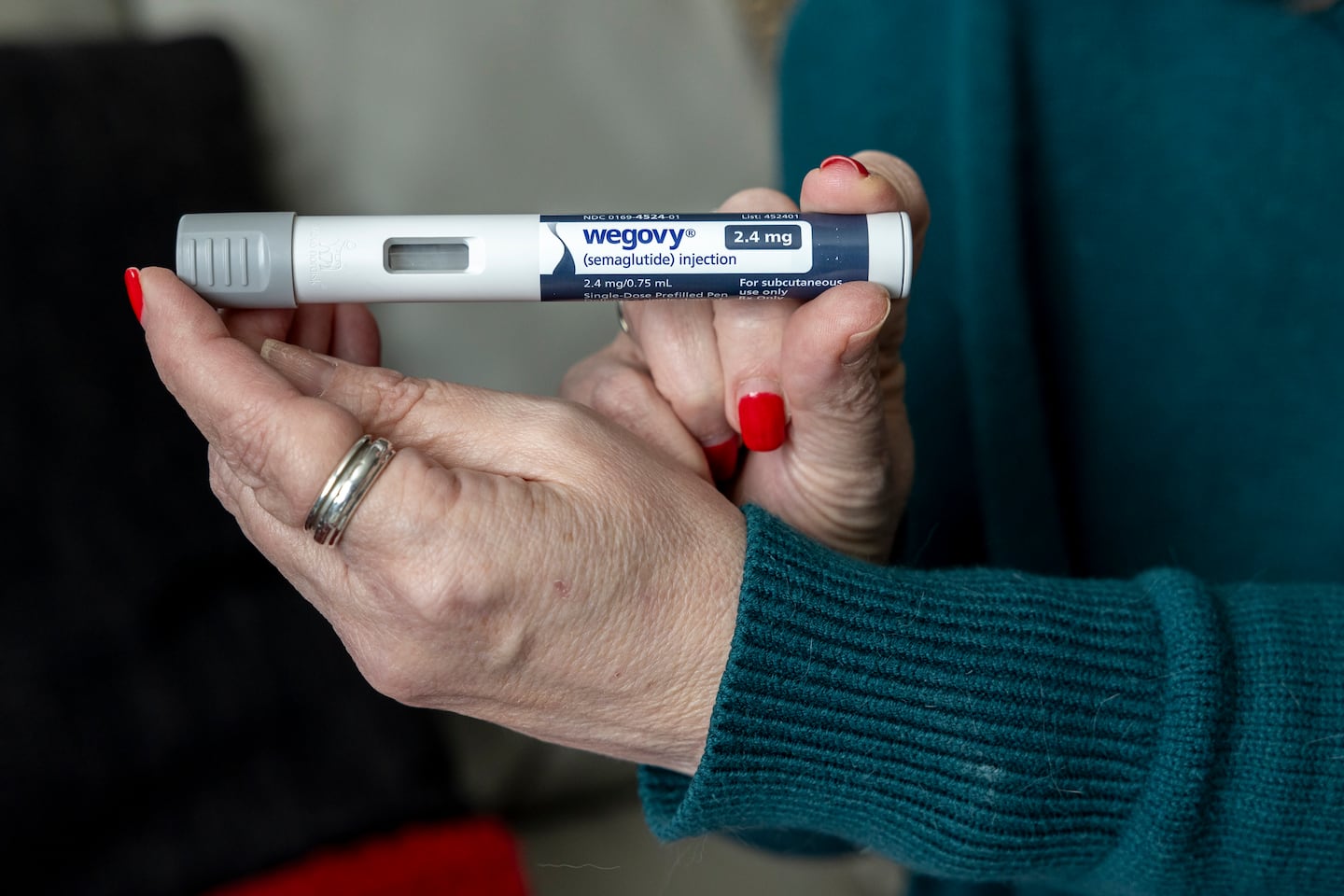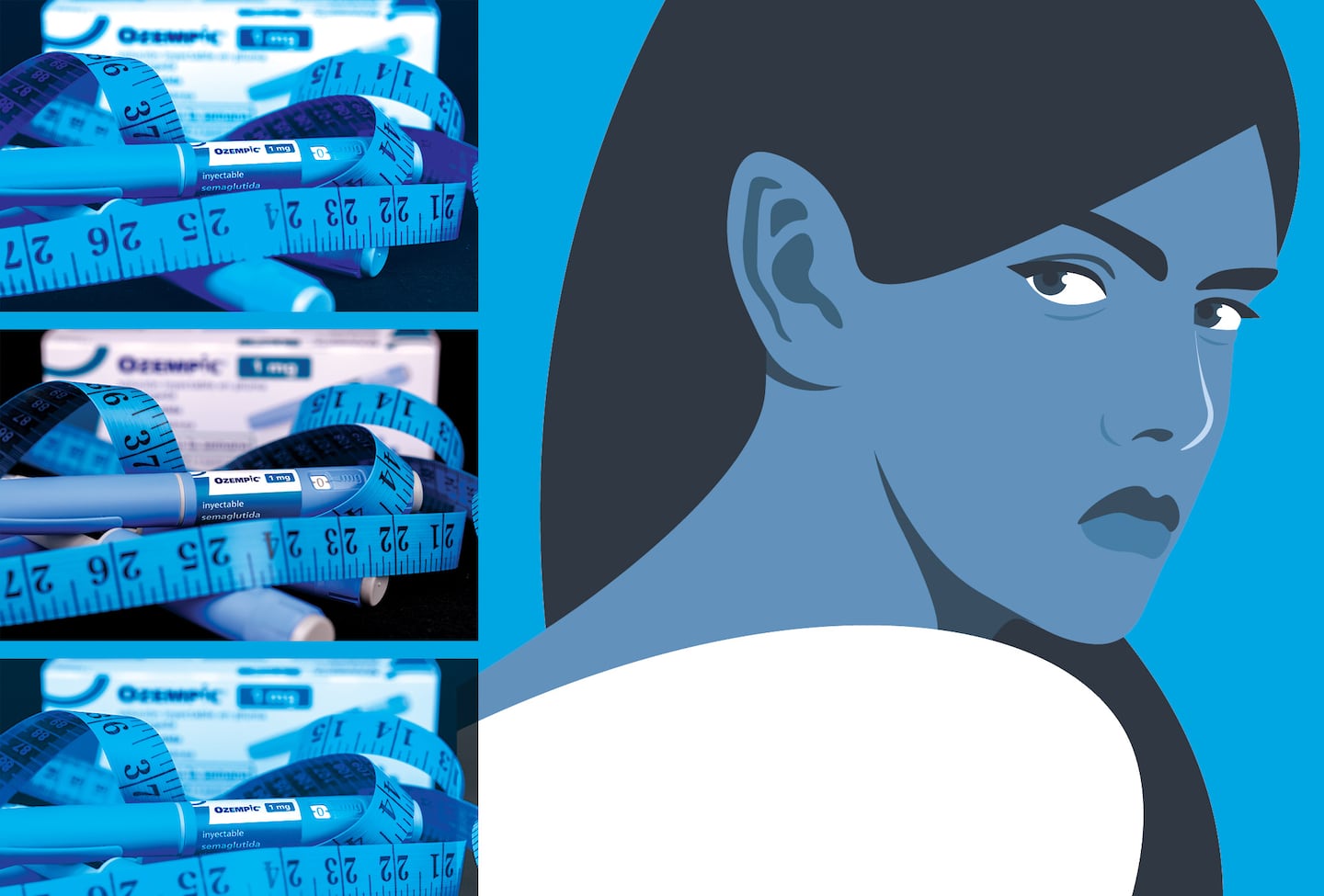It’s been two and a half years since host Jimmy Kimmel’s famous Oscars joke: “Everybody looks so great,” he said from the stage. “When I look around this room, I can’t help but wonder — is Ozempic right for me?”
Get Love Letters: The Newsletter
A weekly dispatch with all the best relationship content and commentary – plus exclusive content for fans of Love Letters, Dinner With Cupid, weddings, therapy talk, and more.
Some of the people who most need the drugs for health reasons still can’t get them because of affordability issues, a situation that is creating disparities along racial and socioeconomic lines, as the Globe and Stat have reported.
But in whiter and wealthier circles, the drugs have filtered down to seemingly everyone: neighbors, colleagues, the cousin who’s always been competitive with you.
Ozempic Face is no longer just for the very rich.
Almost 12 percent of Americans have used GLP-1 drugs for weight loss, and an additional 14 percent say they’re interested, according to a recent Rand survey.
As they become an ever-larger presence in a twisted society that still largely equates thinness with virtue and beauty, the drugs are no longer just reshaping bodies. They’re changing relationships. Jealousy, secrecy, and lies are rippling through friendships, marriages, and even doctors’ appointments.
“If I get my GLP1 through an online clinic, will they tell my primary care doctor?” asked a Redditor whose doctor had denied her request for a prescription because she had an eating disorder as a teen.
“I KNOW this is not ideal,” the user acknowledged, “but I also take … [Adderall] and I don’t want him … to stop prescribing my meds….”
In South Boston, Mary, 35, who asked her last name not be used, is already stressing about her doctor’s appointment. It’s in December.
As a child she was sent to “fat camp,” and has grown into a binge eater who thinks about food constantly. But because she’s overweight but not obese, she fears her doctor doesn’t understand the depth of her struggle.
This summer, almost certain the doctor wouldn’t write her a prescription, she took matters into her own hands and got an online prescription for Zepbound — at $500 a month, plus an initial $120 fee.
She’s lost about 25 pounds, but she’s worried about telling her doctor. “I’m not going to lie to her,” she said, “but I’ve got myself into a pickle.”
In many ways, the drugs are putting many people in a no-win situation. Some people are being judged for taking them. Others for not taking them.
“People have this idea that being fat makes you horrible, and losing the fat any way other than ‘their’ way also makes you horrible,” said Jacqui Conforti, 47, a manager in a high-tech company.
“It’s an addiction, pure and simple, and if someone offered drug addicts or alcoholics a pill to cure their addiction, the creators would receive a Nobel prize. But because this is helping fat people, it is demonized.”
Jen Gaouette, 35, who said she’s about 100 pounds overweight, faces the opposite problem.
“Why aren’t you on Ozempic?” strangers demand.
Lingering problems from a car accident make her particularly concerned about side effects, and so while she’d like an easy solution, she’s not sure GLP-1s are it.
“I don’t like people implying that I need to be fixed,” she said, “or assuming that I’m not already working on what they see as a problem.”
 A dosage of Wegovy.Amanda Andrade-Rhoades/Associated Press
A dosage of Wegovy.Amanda Andrade-Rhoades/Associated Press
The new drugs are triggering emotions that many wish they didn’t have. In a Boston suburb, a wife who is struggling to lose weight for lack of a GLP-1 prescription finds herself being happy for — but also sort of resenting — her husband, who’s dropping pounds easily on a weight-loss drug.
“I get up early to exercise while he’s in bed or watching the news,” she said. “It gets frustrating. I’m cutting my portions in half, and he wants to go out for ice cream.”
Meanwhile, Amanda Torrey, 48, a nanny and a romance writer from Blackstone, is fighting an inner battle.
She’d like to lose 25 to 50 pounds, but instead has been gaining weight. Recently, she saw one of her many friends who is taking a GLP-1. The friend was 100 pounds thinner than she’d been, and looked “adorable,” Torrey said. “And she was feeling great.”
Torrey couldn’t get the transformation out of her mind. “Maybe I should just do it,” she told her partner. He’d like to lose weight, too, but they reminded each other about the side effects and how they don’t want to start a drug they’d be on for life, or put themselves at the “whim” of an insurance company.
So that was that. Or was it?
“Everyone else looks so good,” she said wistfully.
Beth Teitell can be reached at beth.teitell@globe.com. Follow her @bethteitell.
